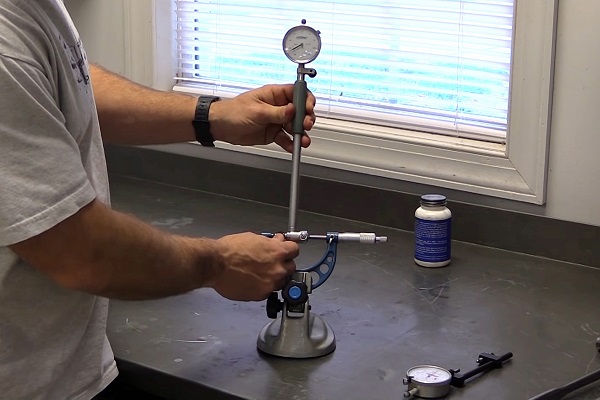Machine shops, as well as automotive and gun smithing companies, often bore parts. In the same way that boring operations involve specific equipment, hole measurements require a specific set of tools.
Bore gauges are used to measure accurately the inner diameter of bores or holes of objects. These are essential tools for engineers and machinists and are available in a number of shapes and sizes and can be used for a variety of applications.
Compared to other types of bore gauges, some are more accurate than others, especially when repeated measurements are taken. The gauging devices, which are usually made up of one or two anvils, are inserted into holes to determine the diameter and evaluated after removal.
The right measuring tool depends on your requirement. Do you have to measure one part or multiple parts? What type of bore do you need to measure – a deep or shallow one? And, finally, what is your budget and skill level?
With so many bore gauges available in the market, how will you choose the right one for your intended application? We will help you choose the right bore gauge for your application.
Also Read- A Guide For Engineers Interested In Medical Lab Technology
Telescopic gauge:
If you need to measure the inner diameter of a bore but are not a skilled person, the apt equipment to choose is the telescoping gauge. Though you need remote secondary device like a micrometre to read the measurement, when compared to other gauges, this one is low-priced. As it comes with a retractable head featuring telescopic rods, you can measure deep into a hole. When compared to high-precision bore gauges, this could be less accurate.
Dial bore gauge:
Easy to use and position inside a bore, a dial bore gauge is not just accurate but does not require remote reading equipment. As the name suggests, it comes with a dial that makes it easier to read measurements and extendable holders that are adjustable to different diameter sizes.
Cylinder bore gauges:
Used to measure cylinder-shaped bores, this gauge comes with a mechanism that can centralise the measuring head in a bore. Both accurate and cost-effective, this equipment is ideal if you need to measure bores up to 6 feet deep.
Micrometre bore gauges:
Micrometre bore gauges come with two- or three-point systems, an assorted range of measuring heads and other special features. You can measure from 0.040 inches to 12 inches. There are both analogue and digital versions; if you need to send your data to a system, then go for the digital version.
Drill hole gauge:
Drill hole gauge is used to provide the size of a drill bit, or it can be used to size a fastener in order to determine which bit to use with it. In order to make it easy for you, each hole is labelled with the size number and the decimal equivalent. In order to get a precise measurement, insert your whole bit in the gauge until the hole within the gauge represents the size of your bit.
Small hole gauge:
Ideal to measure small bores, small hole gauges also need secondary equipment like a micrometre or calliper to get the measurement. Insert the small-hole gauge into the bore and adjust until you feel a light pressure. Remove the gauge and measure using a micrometre or calliper.
You will find a wide range of options to choose from RS Components if you are looking to buy a high-quality bore gauge at an affordable price.

No comments:
Post a Comment